~
To Reviewers & Editors: If you would like a review copy of my book, please leave your contact info in the comments at the bottom of this page.
To Educators: My books have been adopted for courses in several disciplines at the University of Hawai’i (Manoa), University of Guam, Victoria University (Wellington, New Zealand), Syracuse University, University of Kansas, San Francisco State University, Pacific University, University of California (Berkeley), University of California (Los Angeles), University of California (San Diego), University of California (Santa Cruz), Western Washington University, Los Medanos Community College, St. John’s University, Mills College, California Institute of the Arts, City College of San Francisco, Queens College, University of North Carolina, Ohio State University, St. Thomas University, University of Montana, Berkeley City College, and Kamehameha High School.
If you are an educator and interested in a desk copy, please leave a comment. I am available forin-class or Skype visits.
The names of some of the courses that have taught my work: “Pacific Literature and Cultures,” “Indigenous Theory,” “Documentary Poetics and the Art of Witness,” “World Indigenous Literature,” “Contemporary Avant-Garde Poetry,” “Pacific Islander Studies,” “Approaches to the Poem,” “Poetry and Politics,” “Introduction to English Studies,” “Ecology and Poetry,” “Poetry of Place,” “Native Poetry,” “Arts of Africa, Oceania, and Native America,” “Discontiguous States of America,” and “Literatures of Oceania.”
~
Book Three
Interviews:
The Conversant (2013)
Reviews:
“By turns cultural and ecological artifact, personal narrative, body count, and colonial (and resistance) document, Perez’s third collection advances a disturbing, fractured narrative using an impressively wide swath of poetic forms and techniques: prose sections are interrupted by domestic and patriotic language, interweaving the Japanese and American captures of Guam (the author’s birthplace) with the narrator’s personal history and the current wars in the Middle East: “My grandpa o saina struggles to tell his story. The US passed the Guam Meritorious Claims act… His eyes become saltmemories thread fathoms of water. He looks at his empty hands to pledge allegiance.” Wiry, short-lined verse is collaged with Chamorro (a threatened Malayo-Polynesian language) and public comments from Draft Environmental Impact Statements in Guam. The names of Guamanian soldiers killed in action in current U.S. military operations, year by year, stand out against the circumstances of their deaths: “[U.S. Army Sgt. Iosiwo Uruo died in Iraq of wounds suffered when his unit came under attack by enemy forces. He was 27.]” Amid this, Perez returns to the story of the Micronesian Kingfisher, an endangered species on Guam whose existing members are all descended from American-captured, captive-bred zoo birds: “-of trespass—[i sihek]// when land is/ caged [we]// -of theft—[i sihek]// are caged within/ our disappearance.” This is a haunting, forceful testament to a legacy of militarization, cultural hegemony, and resistance. (Apr.)”
Blurbs:
“This latest of Craig Santos Perez’s poetic series, from unincorporated territory [guma’], interrogates what “home” means when you are ancestrally and genealogically from an island and a people who are occupied and militarized to further American empire, when you and your family are forced to leave your island out of economic necessity, when you return to find your island so brutally changed to be nearly unrecognizable. With searing and brave honesty, Perez lays bare colonialism and its devastating injustices, while his fierce love for his people and island stand strong as the latte stones of his Chamoru ancestors. You can’t look at Guåhan, the American-occupied Pacific, nor the United States the same after reading these pages. Free Guåhan and Hawaiʻi!”
–BRANDY NĀLANI MCDOUGALL, AUTHOR OF THE SALT-WIND, KA MAKANI PAʻAKAI
“Craig Santos Perez is quite simply writing some of the most significant poetry of the early 21st century. Employing struck-through lists of dead soldiers, fractured diary entries on a return to Guam or shoplifting Vienna Sausages, public comments from Draft Environmental Impact Statements, and searing poems of brevity and heart, Perez is re-mapping a post-colonial America, one pitch-perfect syllable at a time.”
–MARK NOWAK, AUTHOR OF COAL MOUNTAIN ELEMENTARY
“The navigation strategies of this writing trouble the water and, in so doing, conjure officially unincorporated territory into a new and decidedly unofficial being, one vocal, trans-oceanic, multiple, and searching. Song—“to sing/ forward…to/ sing past”—is part of the superflux; so, necessarily, is the corporeal—“my body these excerpts.” And in these pages the conjuration, Craig Santos-Perez’s appeal, his long-term accounting of what “the meaning of Guam” might be, continues on magnificently.”
–C. S. GISCOMBE , AUTHOR OF PRAIRIE STYLE
“The industrial militarization of Guam clearly did not assess Chamoru poet resiliency in the long-term feasibility analysis. Here, in guma, we enter the waving imbrications in remarkable keyhole clarity, fitted to resist propelling and plummeting with each intended subdual, each Spam infused recruit, each distraught dislocation until we are fulsomely brought to that tiny dot and realize the centripetal force was here all along. Every line here is a bit of incantatory embrace, flush with complex and sincere measure, this, the poet’s song and we are graced with it. An amazing volume, give Craig Santos Perez all the prizes. He’s earned them.”
–ALLISON ADELLE HEDGE COKE, AUTHOR OF BLOOD RUN
~
Book Two:
purchase the book here: Omnidawn Publishing, 2010
~
Accolades:
2011 PEN Center USA Literary Prize for Poetry, WINNER
2010 Los Angeles Times Book Prize for Poetry, Finalist
~
Critical Essays:
The Journal of Transnational American Studies (Volume 3, Issue 2, 2011): “The future holds more than the past has yielded”: T.S. Eliotʻs Invention of Tradition and the St.Louis Exposition of 1904,” by Paul Stasi
~
Reviews:
Huffington Post (Seth Abramson)
San Francisco Examiner Online (LJ Moore)
A Compulsive Reader (Andrew Wessels)
Conference Paper Excerpt (Rob Wilson)
~
Interviews:
Interviewed by Andrew Wessels at the Studio One Blog
Interviewed by Iris Law at the Lantern Review
~
Note from the Publisher:
With the Saina as his figurative vessel — a ship built in modern times as an exact replica of the swift outriggers designed and sailed by the Chamorro people until banned by their oppressors — Craig Santos Perez deftly navigates the complexities in his bracing exploration of the personal, historical, cultural, and natural elements of his native Guam and its people. As the title, — from unincorporated territory [saina] — suggests, by understanding where we are from, we can best determine where we are going. Perez collages primary texts and oral histories of the colonial domination and abuse brought by the Spanish, the Japanese, the United States, and the capitalist entertainment/travel industry, with intimate stories of his childhood experiences on Guam, his family’s immigration to the US, and the evocatively fragmentary myths of his ancestors. Resonant too in Perez’s title, and throughout this work, is this poet’s evocation of the unincorporated and unfathomed elements of our natures, as he seeks the means to access an expansiveness that remains inexpressible in any language. Perez is not afraid to press language beyond the territories of ‘the known’ as he investigates both the anguish and the possibilities that horizon as one attempts to communicate the spoken and unspoken languages of one’s native people, while fully appreciating the suffering inherent in every word he will use that is pronounced in, and thus pronounces, the language of their oppressors.
~
Praise for from unincorporated territory [saina]
from unincorporated territory [saina] continues Craig Santos Perez’s epic investigation of Chamorro culture, language, and identity. It is by turns ferocious and elegiac, historical and lyrical; it is a book of generations, of sedimentary language, of the ability and power to say “us,” of how a human family might actually be claimed. Filled with tidal spaces, broken by waves, garlanded by islands of brilliant attention and sub-surface groundings, Perez’s poem convenes an oceanic poetics. But if the indigenous canoe that sails through the book is freighted with immigration and emigration, colonialism and national piracies, its real cargo remains cultural authority and the incontestable wonder of origin. Ancestors weep and dance to have generated such creative reclamation as this poem achieves. Perez inherits, inhabits… and a great poem flows…
–Aaron Shurin, author of King of Shadows
In from unincorporated territory [saina], Craig Santos Perez––whose very name sounds a poem–– sends his reader out on a simultaneously sturdy and yet amorphous canoe, to discover, explore, circle and espy the oldest and most continuous global story: the imperialist, systematic destruction of a culture. Perez takes the water, sky, land, lost legends, ancestral spirits, and survivors of the Pacific Islands into his own tongue, complicated by “torrents of English,” enlivened by Chamoru. This is a great seafarer’s tale of our own lost oceans, lost no more. Reading this book, I was disabused of the notion that “poetry does nothing.”
–Gillian Conoley, author of The Plot Genie
from unincorporated territory [saina], Craig Santos Perez’s second book of poems, is a touching and loving tribute to his grandmother, Milan Martinez Portusach Santos Reyes. As a central figure in his poems, “Grandma Santos” comes across as one of the more powerful metaphors and realities of survival in Guam: the sakman, or the long-range voyaging canoe. Perez and Santos thus embark on an oceanic journey from Guam to California, where they now reside, reflecting on a shared past of colonial violence and on an equally fraught and sometimes uncertain present. In the end, Grandma Santos assures Perez that her sakman, their sakman, will always be a vessel through which generations of Chamorros may navigate their respective futures. Saina and Sakman, Perez and Santos. These are the threads which link the poetic forms presented in Craig Santos Perez’s latest collection, which, to be sure, is a pleasure to read.
–Dr. Keith L. Camacho, Assistant Professor of Asian American Studies, University of California, Los Angeles
Saina reinscribes the contested territories of home(land) with shards of language and form. Fragments of English and Chamoru, Spanish and Japanese, trace violent routes of empire, colliding, weaving, one into the other. With admirable craft, Craig Santos Perez stitches together patches of jagged memory – Grandma and Grandpa forced to bow to Japanese soldiers; tradition – ‘flying proas’/ sea-going outriggers, fastest in the world; and the continued trauma of US military occupation in Guam — into a garment of uneasy identities so characteristic of our neo/colonial moment. With its powerful, discordant music, Saina is a warrior response to the ‘call’ of empire. Bravo.
–Prof. Caroline Sinavaiana, author of Alchemies of Distance
University of Hawaii, Manoa
To read [Craig] Santos Perez is to experience a brave act of recovery as he continues to write the history and culture of the Chamorro people in Guam back into the language of visibility and vibrancy.
–Rigoberto Gonzalez
Craig Santos Perez’s second book, from Unincorporated Territory (Saina) (Omnidawn), makes undeniably clear why so many people seem excited about his work, and why he’s a writer who certainly will be going on to have a powerful effect on contemporary poetry. This is an impressive, even intimidating, book. Historically detailed about both the history of Guam and the history of his own family both in Guam and beyond, this is a book about politics, race, culture and the often grim facts about what goes undocumented and unheard—or worse, what does get documented, but in the most abusive and detached pseudo-objective and exploitative capitalist ways. These poems offer a powerful indictment of the history of U.S. misuse of Guam, its land, its water, and its citizens, and the combination of large-scale documentation and individual memoir make the damages brutally clear and often emotionally wrenching. The book works with the Chamorro language as well as English, and features a fascinating array of extreme aesthetic experiments. It’s difficult to capture the open-field poetics of these poems in the limited space options of a blog review. “i didn’t know ‘sea level’/would remind me of ‘shelter’/in the material sheaths of the body the smallest wave pronounces/’light derives from/what it touches.’”
–Mark Wallace
~
buy your copy directly from the publisher here.
~
Book One:
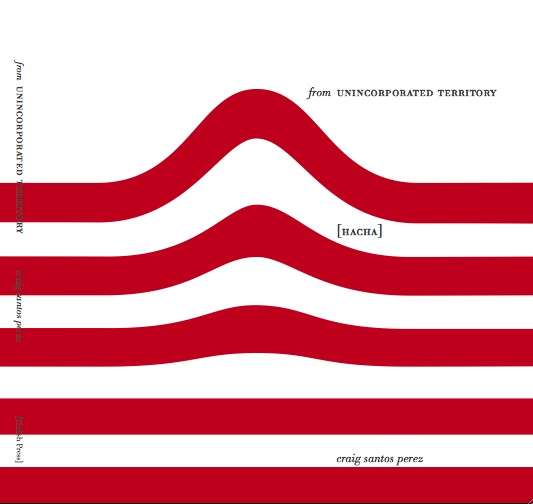
Published by Tinfish Press, 9/1/2008
~
Note from the publisher:
In the preface to his first book, a lyrical epic on the violent convergences of colonialisms on Guam (Japanese and American), history, family, and language (Chamorro and English), Perez writes: “On some maps, Guam doesn’t exist; I point to an empty space in the Pacific and say, ‘I’m from here.’ On some maps, Guam is a small, unnamed island; I say, ‘I’m from this unnamed place.’ On some maps, Guam is named ‘Guam, U.S.A.’ I say, ‘I’m from a territory of the United States.” On some maps, Guam is named, simply, ‘Guam’; I say, ‘I am from Guam.’” Written in the spirit of Theresa Hak Kyung Cha’s Dictée and Barbara Jane Reyes’s Poeta en San Francisco, Perez’s book promises to add significantly to a growing canon of Pacific poetries.
~
Praise for from unincorporated territory [hacha]:
The act of remembering is the art of recovery, and the art of reclaiming a past that has never been hidden only silenced is an act of responsibility. Craig Perez Santos has arrived to give voice and meaning to the unheralded narratives with his fierce debut “from unincorporated territory.” At once a palimpsest and an archive of “retrievable history,” this book of poems is sure to place Guam on both the literary and geographical maps. This poet of consciousness, of communal memory, and of political fury, has undone the callous erasure of imperialism and empowered his people’s folklore, stories and journeys. Craig Perez Santos is a poet with a mission, and with the skill and battle cry to do it right.
—Rigoberto González
In Craig Santos Perez’s from unincorporated territory we hear the movement of the Pacific Ocean; turning each page we hear the oars of the people navigating this ocean. This is a smart, formalistically rigorous, and unapologetically political collection of poetry. Personal, tender, and tough, Perez’s poems, collages of text and images offer a necessary critical, historical perspective on American ownership, Western tourism, and simultaneous erasure of the island of Guam. from unincorporated territory rejects the blank space on American maps and in American consciousness. This is a very satisfying read that I will return to again and again.
—Barbara Jane Reyes
Perez’s deft first book delivers a Guam outside the story of the ‘nation,’ reminding us who and what is ‘from’ his island through the biography of touch, and the intermingled military and colonialist histories brought to the Chamorro people from far across the ocean.
—Robert Sullivan
~
Small Press Spotlight at Critical Mass: The Blog of the National Book Critics Circle Board of Directors.
~
REVIEWS:
Ratings and Reviews at GOODREADS.
Review by Jake Kennedy at Eyewear
Review by John Beer at Make Magazine Issue 7
Review at Asian American Literature Fans
Review by Mary Kasimor at Jacket 37
Review by Corinne Fitzpatrick at Poetry Project Newsletter (2/09 Issue)
~
Buy at Small Press Distribution.
Buy at Tinfish Press Website.
~
Excerpt:
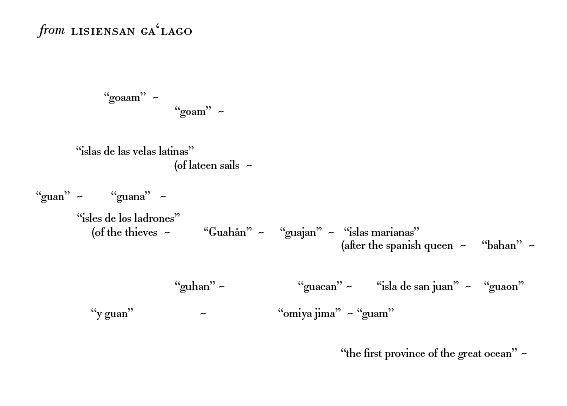
*
Chapbooks:
- Preterrain (Corollary Press, 2008)
- Constellations Gathered Along the Ecliptic (Shadowbox Press, 2007)
- from Preterrain (Big Game Books, 2007) (out of print)
- All With Ocean Views (Overhere Press, 2007) (out of print)
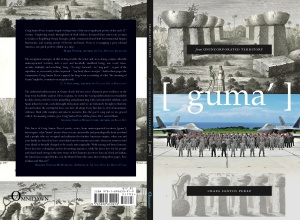
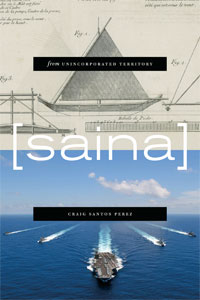
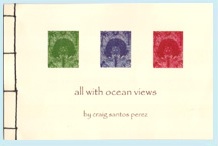
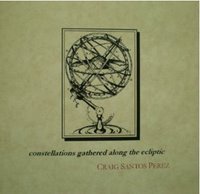
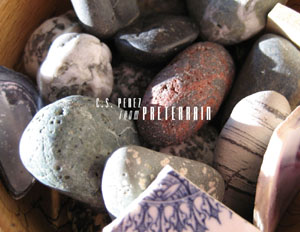
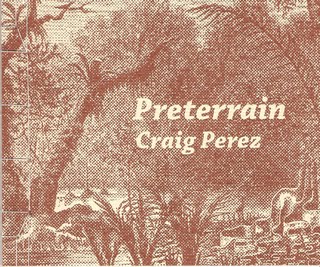
Would it be possible for me to get an examination copy of from Unincorporated Territory? I’m interested both in including this book in a Field Guide to Hybridity, and also in one of my graduate classes in Documentary poetry. Thank you!
May I please get a copy of [guma´] sent to me — looking forward to your visit to California College of the Arts on 4/2/14
My students will buy the book when it’s available. I’m at PO Box 370768 Montara CA 94037
Thanks!
Buenas,
Kao siña un nå’i yo’ unu ha’ na kopian leplo-mu siha, para bai hu konsidedera umu’usa gi klas-hu siha. Hu fanå’nå’gue’ fino “English” gi GCC yan UOG.
Si Yu’os Må’åse yan Agradesimentu put i ayudu-mu
Si Jose
Hello,
Would it be possible to get a desk copy of Unincorporated Territory? I’m going to teach a class of Literature of the Pacific and Transpacific Literatures at the University of Potsdam, Germany.
Please feel free to contact me via: jtemmen@uni-potsdam.de
Best,
Jens
Hello,
My names marline and I am doing a research on you for my literature of the pacific class. I’ve watched you tube videos and so but I would like to have a story written by you so that I could read and get a sense of your writing. If you could please e mail me a story it would be great!
Craig, I want to see if I can get a desk copy of Guma’ as I’m considering teaching it this coming quarter or the next. PO Box 10732 Oakland CA 94610. Salamat/thank you!
Buenas Craig,
How can I get copies of your books? I’m an English teacher on Saipan and make it a point to include literature written by our people in my class.
Si Yu’us Ma’ase!
I am a high school English teacher in Chula Vista, CA and many of our students are from the Pacific Islands. I teach a unit on cultural identity and I would like to examine Guma’ for possible inclusion in our unit of study. I would appreciate your consideration of an examination copy.
Many thanks,
Julie Ratchford